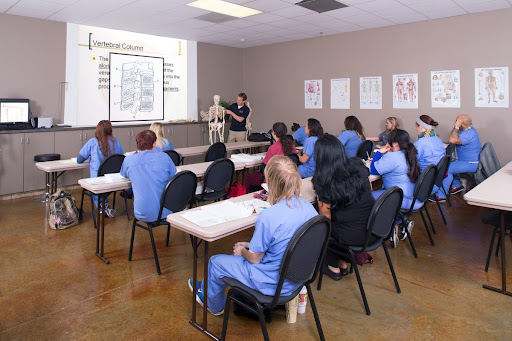Massage therapy has emerged as a popular and respected profession, offering a blend of wellness, healing, and relaxation. As more people recognize the benefits of massage, the demand for skilled massage therapists continues to rise. If you’re considering a career in massage therapy, one of the first steps is enrolling in a massage therapist school. But who exactly can enroll in such programs? Let’s explore the requirements and considerations.
Education Background
One of the most common misconceptions about massage therapy is that you need a specific educational background to enroll in a massage therapist school. However, most programs welcome students from diverse educational backgrounds. Whether you have a high school diploma or a college degree, you can pursue a career in massage therapy.
Age Requirements
While there’s no strict age requirement for enrolling in massage therapist school, most programs require students to be at least 18 years old. This ensures that students have the maturity and responsibility necessary to excel in their studies and interact professionally with clients.
Physical Fitness
Massage therapy is a physically demanding profession that requires strength, stamina, and dexterity. While there are no specific fitness requirements for enrolling in massage therapist school, prospective students should be in good physical health and capable of performing the various massage techniques taught in the program.
Legal Requirements
In some jurisdictions, there may be legal requirements for becoming a licensed massage therapist. These requirements can vary widely depending on where you live, so it’s essential to research the regulations in your area before enrolling in a massage therapist school. In many cases, completing a state-approved massage therapy program and passing a licensing exam are necessary steps to become a licensed massage therapist.
Personal Qualities
Beyond meeting the basic requirements, certain personal qualities can contribute to success in massage therapy. Compassion, empathy, good communication skills, and a genuine desire to help others are all important qualities for aspiring massage therapists. Additionally, a professional demeanor, respect for boundaries, and the ability to maintain confidentiality are essential in building trust with clients.
Considerations for Career Changers
Many people are drawn to massage therapy as a second career or as a career change later in life. If you’re considering transitioning to a career in massage therapy, it’s essential to weigh the financial and time commitments involved in training and obtaining licensure. Additionally, consider how your previous work experience and skills can complement your new career in massage therapy.
Financial Considerations
Enrolling in a massage therapist school involves tuition costs, which can vary depending on the program’s length and location. Additionally, you’ll need to budget for textbooks, supplies, and any other expenses associated with your education. It’s essential to research financial aid options, scholarships, and payment plans to make massage therapy training more affordable.
Choosing the Right Program
With so many massage therapist schools to choose from, finding the right program can be overwhelming. When evaluating programs, consider factors such as curriculum, faculty qualifications, class sizes, and opportunities for hands-on experience. Visiting schools, talking to current students and alumni, and attending information sessions can help you make an informed decision.
In conclusion, massage therapist schools welcome students from diverse backgrounds who meet basic requirements such as age and physical fitness. Personal qualities, legal requirements, and financial considerations also play a role in determining who can enroll in massage therapist school. Whether you’re a recent high school graduate, a career changer, or someone passionate about holistic healing, pursuing a career in massage therapy at Academy For Massage Therapy Training can be a rewarding journey.


